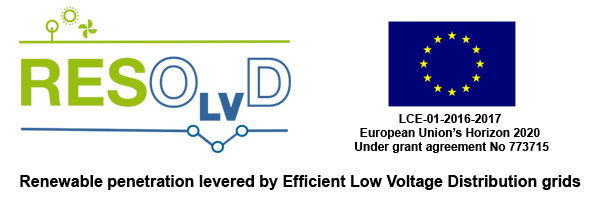University of Girona: energy forecasting, fault detection and grid scheduling algorithms considering grid observability constraints

The University of Girona, UdG, participates in the RESOLVD project through the eXiT group, Control Engineering and Intelligent Systems, of the Institute of Computer Science and Applications (IIiA). The main research activity of the group is focused on the application of artificial intelligence principles (data mining and knowledge discovery, qualitative reasoning, optimisation for resource allocation and scheduling) in process supervision and decision support.
UdG is the Project Coordinator. Moreover, UdG’s scientific contribution, as WP3 leader, is mainly focused on the development of short term generation and demand forecasting methods, grid operation scheduling algorithms and multivariate statistical models to detect abnormal variations and estimation of the optimal grid configuration to maximise the hosting capacity of a given low voltage grid.
During the first 15 months of the project, UdG has actively contributed to the design and specifications of the proposed methods, built on the use cases defined in the project and derived functional requirements. Based on the work in progress and envisioned requirements, different data have been collected in order to analyze the nature and software requirements to deal with it. Some technologies have been evaluated for the implementation of both instrumentation and software algorithms.
UdG activity has been focused on testing different energy forecasting and fault or other disturbance detection algorithms and designing the methodologies to meet the requirements considering grid observability constraints. In particular, the design specifications for the Low Voltage grid observability infrastructure have been developed based on the integration of existing metering infrastructure with cost-effective PMUs and PQM and other sensing and acting instruments (power electronics).

